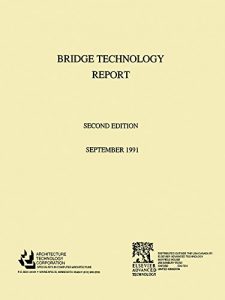As LANs have proliferated, new technologies and system concepts have come to the fore. One of the key issues is how to interconnect networks. One means of interconnection is to use a 'bridge'. Other competing technologies are repeaters, routers, and gateways. Bridges permit traffic isolation, connect network segments together and operate at the MAC layer. Further, because they operate at the MAC layer, they can handle a variety of protocols such as TCP/IP, SNA, and X.25.
This report focuses on the specific technology of bridging two networks and the competing approaches of spanning tree [backed by DEC] and the source route technology [backed by IBM]. Both of these approaches are compared and their strengths and weaknesses described and contrasted. Other approaches that combine the two approaches as well as novel approaches to this problem are described.
In a world of increasing complexity of networks, it is imperative that the user understand the possible means of bridging two networks and the capabilities of the various vendors products. The report focuses itself on developing that critical understanding.






